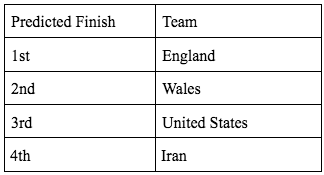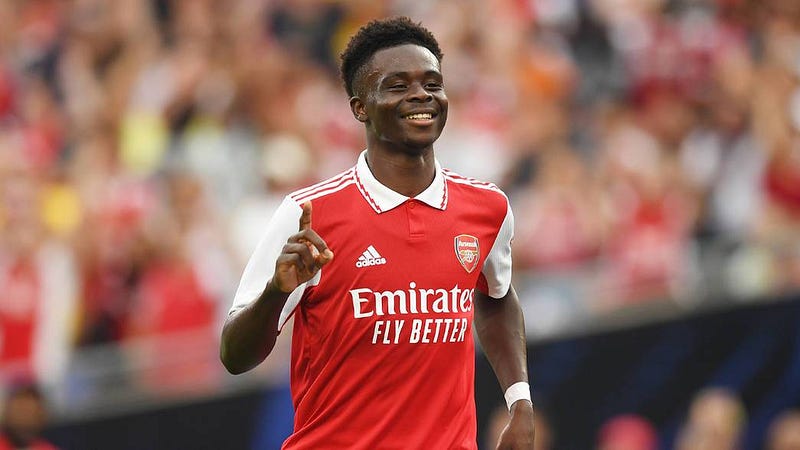
England: Overview
“
Three Lions on a shirt / Jules Rimet still gleaming / thirty years of hurt / never stopped me dreaming.
”
These lines form the pre-chorus of Baddiel, Skinner & The Lightning Seeds’ “Three Lions,” the unofficial rallying cry for English fans since the song’s recording in anticipation of Euro 96. Such is the rabid, totemic place it holds in the hearts of English fans that it has become possibly the most (in)famous recorded anthem in the game of soccer. Of course, their lone World Cup win coming in 1966 means that it has been much longer than thirty years now since the English men’s side lifted international honors, but the sentiments captured in “Three Lions” have only strengthened with time. The English, having more or less invented soccer, consider it a matter of vital importance that they reestablish their name in the history books and reconquer their most successful cultural export. It helps that most of the country is absolutely mad for the sport. Every country wants to win a World Cup, but few countries ache for it the way England does.
England: The Squad
Every England team has a considerable amount of hype behind it, but fans have particularly high hopes for the squad that manager Gareth Southgate has selected for this year’s tournament. Much of this excitement is rooted in the team’s last two performances at major tournaments, a semifinals appearance at the 2018 World Cup and an agonizing loss on penalties in the Euro 2020 finals. These contests nevertheless remain England’s best showings in two consecutive tournaments since they were quite literally on top of the world, and with dazzling young talent at the heart of this side, they are likely to improve considerably as the decade progresses.
The star of this English side is talismanic center-forward Harry Kane, the brightest light of the English game and his dometic club team Tottenham Hotspur for much of the last decade. Kane’s instincts in front of goal are remarkable, as is his penchant for dropping into midfield and launching attacks with pinpoint accuracy via immaculately floated through-balls. He lies on the cusp of Wayne Rooney’s all-time goalscoring record in an England shirt, and chances are significant that he
seizes that record for himself in Qatar. Kane’s primary partner-in-crime across this stint in the national side has been prolific winger Raheem Sterling, England’s go-to man when the going gets tough. Even when his club form has vacillated from scintillating to shocking, Sterling has continually shown up with the goods for the Three Lions when the chips are down. Now Kane and Sterling’s reinforcements lie at the head of England’s youth revolution, whose three crown jewels are Phil Foden, Bukayo Saka and Jude Bellingham.
Foden is an obscenely talented player capable of performing in most forward and midfield roles, although he has shone brightest while playing out on the left. His ball control is astonishing and his overall technique remarkable; combined with a hunger for scoring and a developing ability to grab games by the scruff of the neck, Foden has become one of the world’s most dangerous left-wingers. Saka struck the final fateful penalty against Italy at Euro 2020 while still a teenager, but while such experiences have destroyed the careers of more established players, the greatest hope of Premier League table-toppers Arsenal has instead blossomed into one of the premier right-wingers on the planet. Every year, he seems to turn his greatest deficiency into a strength, improving his strength, shooting and weak foot to the point of achieving a completeness most players can only dream of.
Saka can do almost anything in the final to a high level now, as well as quite a bit further back; the sight of him running at fullbacks is absolutely terrifying. Bellingham is only 19, but has already established himself as England’s most complete central midfielder. He often wears the number 22 on the advice of a former youth coach, symbolizing that he can play in defensive (number four), balanced (number eight) and offensive (number 10) roles equally well.
His exploits for German side Borussia Dortmund include bossing players a decade his senior, scoring for fun in Europe’s most prestigious continental club competition (the Champions League) and embarrassing world-class opposite numbers. It is no wonder that he has become a nailed-on starter for England.
The rest of the England squad is also strong, although not perhaps as precocious as these three. Defensive midfielder Declan Rice is one of the world’s best at shielding back lines; his unusual tendency to carry the ball forward offers unpredictability in attack that can catch opposing sides off guard. While Reece James will miss the World Cup due to injury and Kyle Walker faces a race to be fit in time for the first match, England’s depth at right-back is still astonishing; Southgate still has the elite
Trent Alexander-Arnold and Kieran Trippier available to him. Both are offensively dangerous, with Alexander-Arnold’s game more centered around his world-class crossing abilities and Trippier’s more well-rounded, and Saka’s Arsenal teammate Ben White has also played his way into the squad as a more defensive option. While Fikayo Tomori, fresh off a league victory with Italian giants AC Milan, has controversially missed out on a place in the squad, John Stones remains a gifted marshal of the England defense. His controversial partner at center-back Harry Maguire has also looked good in an England shirt despite unconvincing club form for domestic side Manchester United. Even if opposing attackers find themselves through on goal, Jordan Pickford has long been an imposing presence in the England net, capable of thwarting offensives left and right. While his club form has been shaky until recently, Pickford has always been an absolute animal for England, coming up with clutch saves time and again when the team needs him most.
In summation: this is a damn good squad, better and more complete than any to compete for England in a while. The scariest part is that they will only get better.
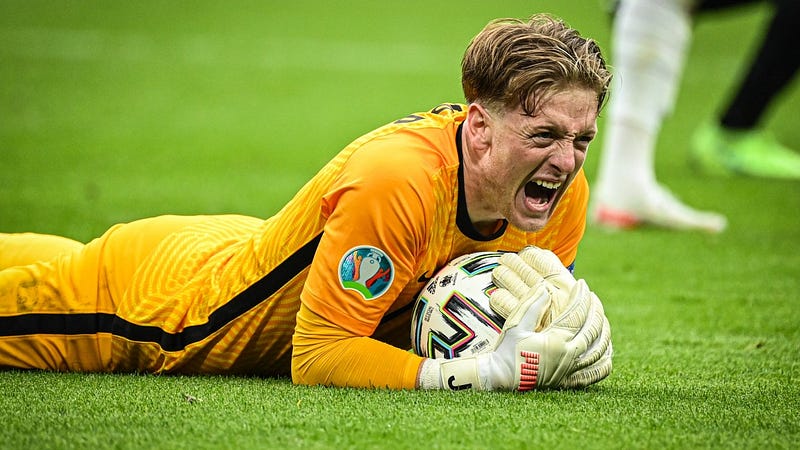
England: Prediction
I am not going to do an in-depth analysis of England’s chances in the way that I have for the other teams. For the English, anything short of victory in the World Cup represents abject failure, regardless of squad quality or strength of opposition; arguing what constitutes a respectable showing for them is therefore useless. The only question worth asking about the England squad, then, is this: can they win the World Cup?
In one sense, yes. In terms of raw talent, this England side is positively overflowing with skill and potential. They have the most purely gifted side in the tournament short of Brazil, and if the French struggle in the group stages (which history and current rumors suggest they might), then England has a relatively smooth run to the semifinals, much like in 2018.
On the other hand,
this is England
. They always have found a way to lose. They have always managed to snatch defeat from the jaws of victory, punctuated by excruciating misses, ‘phantom goals,’ petulant red cards and the eventual letdown, often found at the mercy of the penalty shootout.
At times, there seems to be a mental block developed in English players. Such is the relentless pressure from fans and (particularly) the press that their historical tendency to choke under pressure is decidedly unsurprising. Despite the vast number of players across soccer’s history who have faltered in decisive moments for their countries, there is one nation that has suffered more due to players losing their heads than any other. Self-destruction on the pitch, either on one’s own or collectively, often seems almost quintessentially English. They are just as likely to fall at the hands of their more frequent tor-mentors — Germany and Argentina in particular — as they are to unfancied opposition.
One of the most striking features of ‘Three Lions’ is that it is, at its core, a deeply pessimistic song. The great anthem of the oldest, proudest footballing nation in the world centers around the notion that “
everyone seems to know the score, they’ve seen it all before / they just know, they’re so sure / that England’s gonna throw it away, gonna blow it away.
” Misery is the norm for the English soccer fan, a perpetual state of misanthropic despair surrounding their national team, and even the victory of the English women’s team at this year’s Euros can only do so much to salve that pain.
Speaking in strictly footballing terms, England will do very well for themselves this World Cup, and it is not out of the question that they could go all the way. Historically and psychologically speaking, however, England will crash out in the most painful way possible, thus preserving an entire nation in agonizing bondage for just a little while longer.
England will lose on penalties to the Germans in the semifinals. It is written in the stars.
Iran: Overview
Iran is historically one of Asia’s stronger teams, arguably the strongest outside of East Asia in international play. Among their greatest players are Ali Daei, long-time record-holder for most international goals scored in the men’s game, skillful attacker Ali Karimi and workhorse right-back Mehdi Mahdavikia. All three of these players performed in the Bundesliga, the highest leagues in Germany, with aplomb; Iran’s recent pedigree is thus sizable in spite of their lack of performances on the world stage. Armed once more with a deadly attacking outfit, Team Merri certainly has plans of playing spoiler and qualifying for the knockout stages.
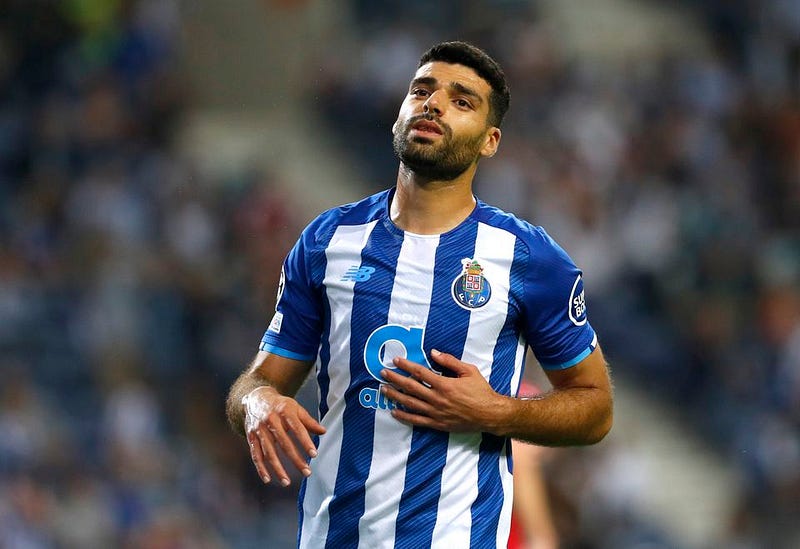
Iran: The Squad
Much of the quality in this Iranian side is devoted to scoring goals by the bucketload. Winger Alireza Jahanbakhsh can be extremely dangerous when cutting in from the left-hand side, and Sardar Azmoun’s prolific goalscoring record for the national team testifies to his diverse set of skills: a peculiar combination of poacher’s instincts, fleet footwork and aerial prowess. Perhaps the most terrifying of all these threats is Mehdi Taremi. A late bloomer whose big break in Europe came three years ago at the age of 27, Taremi has become (in my opinion) the best player competing in Portugal, bar none. His movement, linkup play and predatory instinct in the 18-yard box are all elite, simultaneously making the Iranian attack difficult to isolate and even keener. Even teams somehow manage to keep all three of these players quiet, seasoned backup Karim Ansarifard sure as hell knows where the net is too.
Other than that, there are few truly notable players on the Iranian team. Sadegh Moharrami is more than capable of putting in a decent shift at right-back; the same goes for his counterpart on the opposite flank Milad Mohammadi, most famous for his failed attempt at a cheeky trick thrown-in at the previous World Cup.
Iran: Prediction
Iran may be the weakest team in Group B on paper, but do not be fooled: they can still throw some serious weight around in tight matches. A surge into second place is not out of the question, and even if they
fail to make it out of the group stage, they still have a decent chance of deciding which other side does, such is the fearsomeness of their attack. Even a momentary slip from the English, American or Welsh defenses could allow Azmoun or Taremi to play spoiler.
Wales: Overview
The last time Wales played in a World Cup was 1958. Their star player was the ‘Gentle Giant’ John Charles — notable for his remarkable proficiency at both center-forward and center-back, an exceedingly rare combination of talents both then and now. Pelé, the wunderkind who would establish himself as one of the world’s best players at the tournament, was merely seventeen. Suffice to say times were different back then.
The fifty-eight years between then and now have seen Wales produce their fair share of world-class players — Ian Rush, Neville Southall and Ryan Giggs have all lit up the top tier of the English game in the meantime — but success at the national level has remained elusive. Now, helmed by an aging Gareth Bale — arguably the greatest player of all to wear the Wales jersey — The Dragons have an incredibly rare shot at glory on the biggest stage of all.
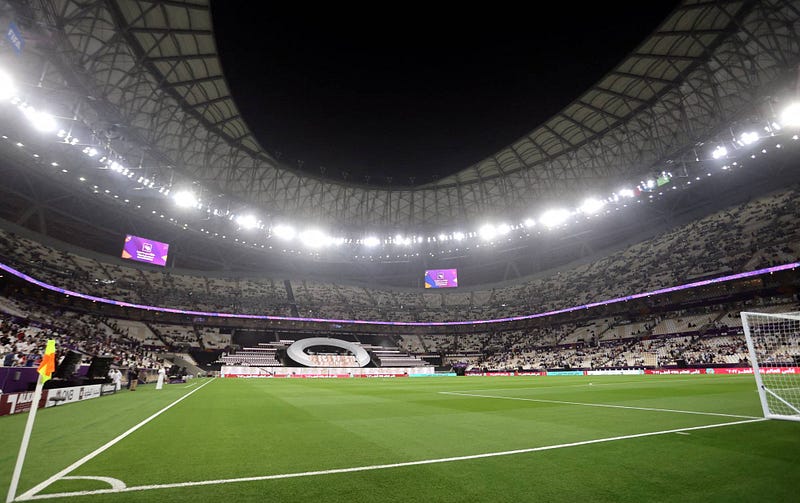
Wales: The Squad
Bale is a walking legend of the game, in spite of his infamous antics during the latter stages of his enormously successful spell at Real Madrid. Age has slightly dulled his once-fearsome agility, but he still possesses blazing pace, dazzling technical ability, deceptive strength and a ferocious shot. He is also a tremendously clutch player, capable of showing up out of nowhere and seizing a game by the horns to save whatever side he is on at the time. Bale is currently plying his trade in the MLS for Los Angeles FC, a far cry from the massive stages he regularly lit up for much of the past decade, but even in the twilight of his career, he can still snatch a result from the jaws of defeat.
A number of key players of Wales’ 2016 run to the semifinals of the European Championships join him. Aaron Ramsey’s torrid time playing in Italy in Juventus has ended his career at the top level, but he is still liable to score a few from midfield alongside longtime partner-in-crime Joe Allen. Nicknamed ‘Rambo’ and the ‘Welsh Pirlo’ after the action movie character and Italian midfield maestro respectively, the duo are still more than capable of setting the team’s tempo in the center of the field. Record Welsh appearance-holder Chris Gunter is a longtime fixture in the back line alongside Tottenham’s versatile stalwart Ben Davies; it feels as though the latter has been around forever despite still being in his twenties. Promising center-back Joe Rodon found game time hard to come by as Davies’ teammate at Spurs, but a loan spell in France has seen him recover his confidence at a crucial juncture.
However, if Wales is to progress, they will need their veterans’ contributions to be matched by the squad’s relative newcomers. Veteran Kieffer Moore has slogged through the highly demanding arena of semi-professional soccer in England’s lower leagues, working his way up to the top by generally making himself a nuisance for whichever defense has to corral him, no matter the level. Now a dangerous goalscorer in the Premier League, his goals and positional play will be necessary to not only free up room for his teammates, but to inject some much-needed physicality into the Welsh attacking third. Moore’s Bournemouth side have already come out on top against Nottingham Forest this season, whose right flank will also be playing important roles for Wales; Neco Williams is an adroit right-back full of attacking prowess, and Brennan Johnson seems more and more like the next young attacking star to light up the wings. Johnson in particular will be crucial to providing added edge to a Welsh attack that hardly lit up qualifying.
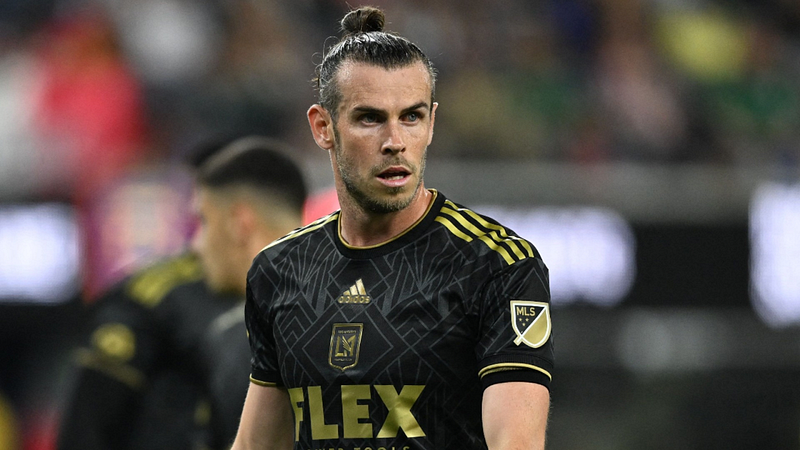
Wales: Prediction
Despite their star players’ aging, Wales remain a more than capable side on their day; even though they come into the World Cup in poor form, the same can be said for the other sides in Group B. When the margins are this close, any side can qualify with a clutch performance or two and a dash of luck. The U.S. probably has a more well-balanced squad than Wales and Iran’s fierce attack can cause them serious problems; nevertheless, I predict that the Dragons will squeeze through into the knockout stages. It can be cliché to speak of one or two players making the difference in an 11-on-11 sport, but the x-factors of Moore, Johnson and especially Bale could very well work magic in the fine margins of the group stage. Beyond that, though, the Welsh team lacks the all-around quality to push any further into the knockout rounds.
